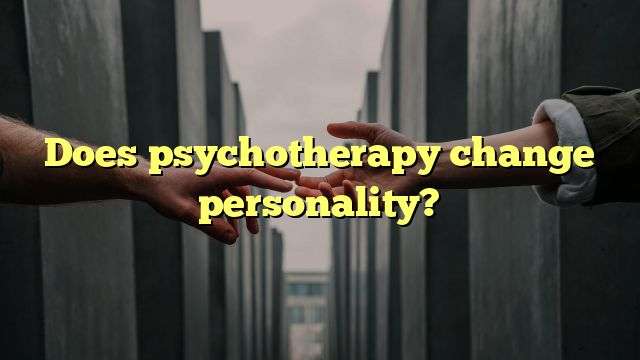Does Psychotherapy Change Personality?
Psychotherapy is a form of psychological treatment that often helps people to manage their mental health conditions. It can also be used to improve a person’s overall wellbeing and to help them to better understand and manage their emotions. It has often been suggested that psychotherapy can also change a person’s personality. This article will explore the evidence for whether psychotherapy can change a person’s personality and how this might be achieved.
What Is Personality?
Personality is a complex concept that is difficult to define. However, it can generally be understood to refer to a set of characteristics and traits that make up an individual’s unique identity and behaviour. It includes attributes such as how a person thinks, behaves and relates to others.
The Big Five Personality Traits
One of the most widely accepted models of personality is the ‘Big Five’, which was developed by psychologist Lewis Goldberg in the 1980s. The Big Five consists of five broad dimensions of personality, including:
- Neuroticism: A tendency to experience negative emotions such as anxiety and depression.
- Extraversion: A tendency to be sociable, talkative and assertive.
- Openness: A tendency to be imaginative, curious and open to new experiences.
- Agreeableness: A tendency to be compassionate, generous and cooperative.
- Conscientiousness: A tendency to be organised, reliable and hard-working.
Can Psychotherapy Change Personality?
There is evidence to suggest that psychotherapy can be effective in changing a person’s personality. A study by researchers at the University of California, Los Angeles (UCLA) found that psychotherapy had a “modest but statistically significant effect” on personality traits. The study looked at the effects of psychotherapy on the Big Five personality traits and found that, of the five traits, Neuroticism showed the greatest improvement.
The study found that, on average, psychotherapy reduced scores on the Neuroticism scale by around 10%. The remaining four traits (Extraversion, Openness, Agreeableness and Conscientiousness) showed a small, but statistically significant, improvement.
The study concluded that psychotherapy can be an effective way of changing personality, particularly in relation to reducing Neuroticism scores. Interestingly, the study found that the effects of psychotherapy were greatest when the person receiving the therapy was motivated and engaged in the process.
How Can Psychotherapy Change Personality?
Psychotherapy can help to change a person’s personality by helping them to better understand and manage their emotions. By exploring their feelings and learning to identify and understand the causes of their distress, a person can gain greater insight into their behaviour and develop new ways of responding to situations.
Therapy can also help to change a person’s thinking patterns and beliefs. By challenging negative thoughts and exploring alternative viewpoints, a person can become more open to different perspectives and more able to think flexibly. This can help to reduce anxiety and stress, and can also lead to changes in behaviour.
Conclusion
In conclusion, there is evidence to suggest that psychotherapy can be effective in changing a person’s personality. Research has shown that psychotherapy can reduce scores on the Neuroticism scale, as well as making small improvements in the remaining four dimensions of the Big Five personality traits.
Psychotherapy can help to change a person’s personality by helping them to explore and understand their emotions, as well as challenging negative thoughts and beliefs. It is important to also note that the effects of psychotherapy are most effective when the person receiving the therapy is motivated and engaged in the process.




